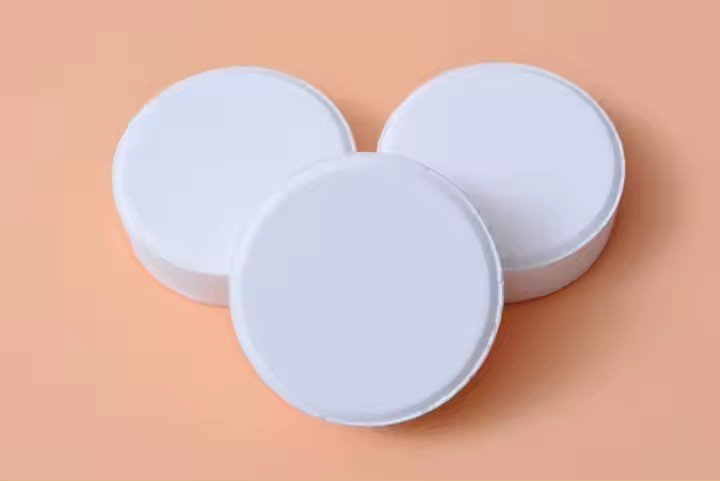Chlorine tablets are an essential tool for maintaining clean and safe swimming pools. They offer a convenient and efficient way to sanitize water, ensuring your pool remains free from harmful bacteria and algae. However, a common question that arises among pool owners is: Can chlorine tablets still be used when they get wet?

Understanding Chlorine Tablets
Chlorine tablets are specially formulated to dissolve slowly, releasing chlorine into the water over time. This slow-dissolving nature makes them ideal for pool maintenance, as they provide consistent disinfection without the need for constant monitoring. Whether you purchase them from your local store or a specialized supplier like a pool chlorine tablets factory, their effectiveness depends on how well they are stored and handled.
When properly stored in a cool, dry place, chlorine tablets can last for years. However, they are highly reactive to moisture, which can compromise their structure and functionality. Knowing how to handle wet chlorine tablets can help you avoid waste and ensure your pool stays in top condition.
What Happens When Chlorine Tablets Get Wet?
When chlorine tablets come into contact with water outside of their intended use in a pool, they begin to dissolve prematurely. This can lead to several issues:
1. Loss of Effectiveness:
Once a tablet starts to dissolve, its ability to provide longterm sanitation diminishes. This means you may need to use more tablets to achieve the desired chlorine levels in your pool.
2. Clumping and Caking:
Moisture can cause tablets to stick together or crumble, making them difficult to handle and measure.
3. Safety Risks:
Chlorine tablets are a chemical compound that reacts with water, releasing chlorine gas. This can create a hazardous environment if they get wet in storage.
Can You Still Use Wet Chlorine Tablets?
The short answer is yes, but with limitations. Wet chlorine tablets can still sanitize your pool, but their efficiency and usability may be reduced. Here are some tips for dealing with wet tablets:
1. Use Immediately:
If tablets get wet accidentally, it is best to use them as soon as possible in your pool. This minimizes waste and ensures they don’t lose too much of their effectiveness.
2. Avoid Mixing Wet and Dry Tablets:
Mixing wet tablets with dry ones in storage can lead to clumping and uneven distribution of chlorine when used.
3. Inspect for Damage:
Crumbled or broken tablets may not dissolve evenly, so check their condition before adding them to your pool.
Preventing Moisture Issues
Proper storage is the key to maintaining the effectiveness of chlorine tablets. Here are some best practices:
1. Use Airtight Containers:
Store chlorine tablets in airtight, moistureresistant containers to prevent exposure to humidity or accidental spills.
2. Keep Away from Water Sources:
Ensure that the storage area is dry and away from potential water sources, including rain or leaks.
3. Separate Storage for Pool Chemicals:
Chlorine tablets should be stored separately from other pool chemicals to avoid unintended chemical reactions.
4. Label and Organize:
Clearly label your storage containers and keep them organized to minimize the risk of mixing wet and dry tablets.
By purchasing high-quality chlorine tablets from reliable suppliers or directly from a buy chlorine tablets platform, you can ensure you are starting with a product that is designed for optimal performance.
How to Use Chlorine Tablets Safely
Using chlorine tablets correctly is crucial for maintaining a safe and healthy swimming environment. Here is a quick guide:
1. Use a Chlorine Dispenser:
Place tablets in a floating or inline dispenser to ensure they dissolve evenly and don’t damage the pool’s surfaces.
2. Monitor Chlorine Levels:
Regularly check the chlorine levels in your pool to ensure they remain within the recommended range of 13 ppm (parts per million).
3. Handle with Care:
Wear gloves when handling chlorine tablets to avoid skin irritation and wash your hands thoroughly afterward.
4. Dispose of Damaged Tablets:
If a tablet is too damaged or compromised to use safely, follow your local disposal guidelines for pool chemicals.
Final Thoughts
Wet chlorine tablets are not ideal, but they can still be used with careful handling and prompt application. The key to preventing issues is proper storage and purchasing high-quality products from reputable suppliers. Whether you need to buy chlorine tablets for home use or source them from a pool chlorine tablets factory, maintaining a dry storage environment is essential for keeping your pool clean and safe.
